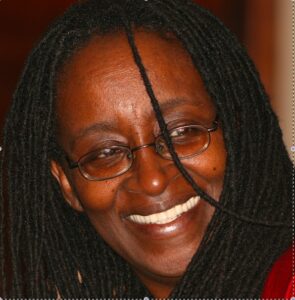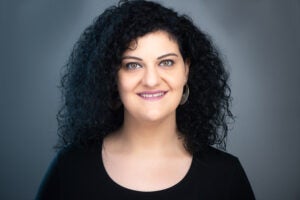
Welcome to the on demand online course ” Online Harassment: Strategies for Journalists’ Defense” from the Knight Center for Journalism in the Americas at the University of Texas at Austin, in partnership with International Women’s Media Foundation. This four-week course took place from November 16 – December 13, 2020.
During this four-week course, you will learn about online privacy and how to better protect yourself while working as a journalist. You’ll also learn about the global context of online harassment and hear from female journalists who will speak about the strategies they’ve used to deal with it.
in partnership with:

Introduction Module: Course description
During this introductory module you will be able to watch our welcome video where you will find out information about your instructors and the topics they will cover over the coming weeks. You can also check out our reading materials to get you started on the topic of online harassment and its effect on women working in media.
Module 1: Introduction to online harassment
Module one is taught by Arzu Geybulla. Arzu is a freelance journalist from Azerbaijan, currently based in Istanbul. She covers Azerbaijan while some of her recent work looks at the use of information controls and authoritarian technology.
During week one you will gain an insight into online harassment around the world through the stories of women journalists who have experienced it. Arzu and her guest speakers will also teach you coping strategies for dealing with abuse online.
This module will cover:
Module 2: Understanding privacy
This module will be taught by Catherine Gicheru. Catherine is an ICFJ Knight fellow and the Project Director of the African Women Journalism Project (AWJP) an initiative supported by the ICFJ. She is a veteran journalist and was the first woman bureau chief in East Africa and the first female news editor of the Nation Media Group in the region.
During this week, we will look at how to understand privacy online especially as a journalist, since you face the difficult task of needing to have an online presence while trying to protect your privacy online.
This module will cover:
Module 3: Trolls and their strategies
Taught by Ela Stapley, former freelance journalist and digital security trainer working with the International Women’s Media Foundation on their online harassment initiative. Ela supports journalists around the world with their digital safety needs.
This module will examine the types of people who harass you online and those that support and, in some cases, pay them. We will also look at common troll strategies, and some techniques for documenting attacks.
This module will cover:
Module 4: Digital security steps for online harassment
Module 4 is taught by Myra Abdallah. Myra is the head of media department at the Arab Foundation for Freedoms and Equality and the Arab region communications manager for Women in News program at WAN-IFRA, based in Beirut, Lebanon. She is specialized in gender and media, and trains on gender balance in media, countering sexual harassment and digital security.
During this week you will gain practical knowledge on how to counter online harassment and be safe online, through learning the different steps and tools of digital security. Myra will present the best practices for a safe online experience.
This module will cover:
 Arzu Geybulla, Azerbaijani columnist and writer, with a special focus in digital authoritarianism and its implications on human rights and press freedom in Azerbaijan. In the past, Arzu has written for Al Jazeera, Eurasianet, Foreign Policy Democracy Lab, CODA, and Radio Free Europe Radio Liberty. She is a regular contributor at Open Democracy, IWPR, and Osservatorio Balcani e Caucaso. She is the recipient of several fellowships and was featured on BBC 100 Women Changemakers in 2014. Currently, she is based in Istanbul where she continues her journalism work and working on her book about the story of Azerbaijani political dissidents.
Arzu Geybulla, Azerbaijani columnist and writer, with a special focus in digital authoritarianism and its implications on human rights and press freedom in Azerbaijan. In the past, Arzu has written for Al Jazeera, Eurasianet, Foreign Policy Democracy Lab, CODA, and Radio Free Europe Radio Liberty. She is a regular contributor at Open Democracy, IWPR, and Osservatorio Balcani e Caucaso. She is the recipient of several fellowships and was featured on BBC 100 Women Changemakers in 2014. Currently, she is based in Istanbul where she continues her journalism work and working on her book about the story of Azerbaijani political dissidents.
 Catherine Gicheru is an International Center for Journalists (ICFJ) Knight Fellow currently spearheading a project that drives coverage of underreported gender, health and development issues affecting marginalized groups. That initiative, the Africa Women Journalism Project (AWJP), also works to strengthening the voices of women journalists by helping them to become innovators in their newsrooms.As the driving force behind the AWJP, Gicheru leads a team of journalists, mentors and data analysts in five African countries (Ghana, Kenya, Nigeria, Tanzania and Uganda) who are producing smart, data-based storytelling with a special focus on COVID-19.
Catherine Gicheru is an International Center for Journalists (ICFJ) Knight Fellow currently spearheading a project that drives coverage of underreported gender, health and development issues affecting marginalized groups. That initiative, the Africa Women Journalism Project (AWJP), also works to strengthening the voices of women journalists by helping them to become innovators in their newsrooms.As the driving force behind the AWJP, Gicheru leads a team of journalists, mentors and data analysts in five African countries (Ghana, Kenya, Nigeria, Tanzania and Uganda) who are producing smart, data-based storytelling with a special focus on COVID-19.
A veteran journalist with two of the leading media organisations in the region – she was the first woman bureau chief, the first female news editor of the Nation Media Group and was the founding editor of the dally newspaper the Star. She co-founded East Africa’s first budget and public finance fact checking and verification initiative, PesaCheck. She is an advisory board member of the Reuters Institute for the Study of Journalism Oxford; the Aga Khan University’s Graduate School of Media and Communications; the British Council’s First News Worldwide program and advised on Open Society’s Fiscal Governance Program and the ICFJ’s State of Technology in Global Newsrooms survey. She is a jury member for WAN-IFRA Africa Digital Media Awards, EJC’s MoneyTrail among others. Gicheru is a Nieman Fellow at Harvard University, a Reuters Institute Journalism Fellow at Oxford University, and a 1992 IWMF Courage in Journalism award winner.
 Ela Stapley is a digital security advisor working with the International Women’s Media Foundation helping them to shape their online harassment initiative. She is the coordinator of this course, Online Harassment: Strategies for Journalists’ defense. Ela trains journalists around the globe on digital security issues and provides one-to-one support for media workers in need of emergency assistance. She is interested in finding ways to help journalists, especially freelancers, be engaged with digital safety and helping them to be more secure as they go about their work. Ela is also part of the emergencies team at the Committee to Protect Journalists.
Ela Stapley is a digital security advisor working with the International Women’s Media Foundation helping them to shape their online harassment initiative. She is the coordinator of this course, Online Harassment: Strategies for Journalists’ defense. Ela trains journalists around the globe on digital security issues and provides one-to-one support for media workers in need of emergency assistance. She is interested in finding ways to help journalists, especially freelancers, be engaged with digital safety and helping them to be more secure as they go about their work. Ela is also part of the emergencies team at the Committee to Protect Journalists.
Prior to working in digital security, Ela was a freelance journalist, and a teacher. She holds an MA in International Journalism from Cardiff University, UK.
 Myra Abdallah is a Lebanese journalist and gender rights activist. She is currently the Women in News communications manager for the Arab region at the World Association of Newspapers and News Publishers (WAN-IFRA), the Head of Media Department at the Arab Foundation for Freedoms and Equality (AFE), and an online harassment advisory board member at the International Women’s Media Foundation (IWMF). She is also a Lebanese independent journalist and a trainer, specialized in gender literacy, digital and organizational security, gender bias in media, gender-based violence against sexual minorities and protection of women journalists.
Myra Abdallah is a Lebanese journalist and gender rights activist. She is currently the Women in News communications manager for the Arab region at the World Association of Newspapers and News Publishers (WAN-IFRA), the Head of Media Department at the Arab Foundation for Freedoms and Equality (AFE), and an online harassment advisory board member at the International Women’s Media Foundation (IWMF). She is also a Lebanese independent journalist and a trainer, specialized in gender literacy, digital and organizational security, gender bias in media, gender-based violence against sexual minorities and protection of women journalists.